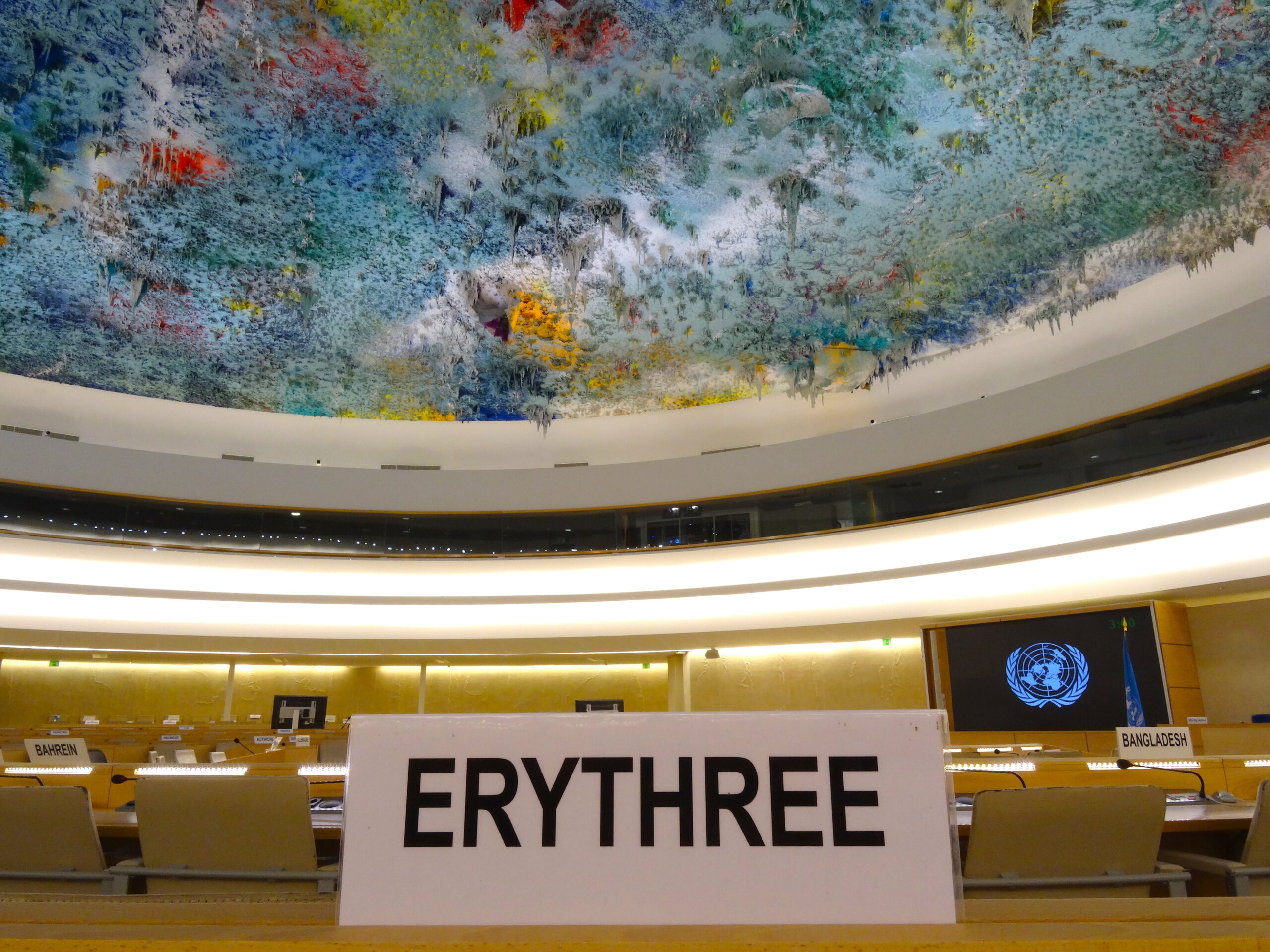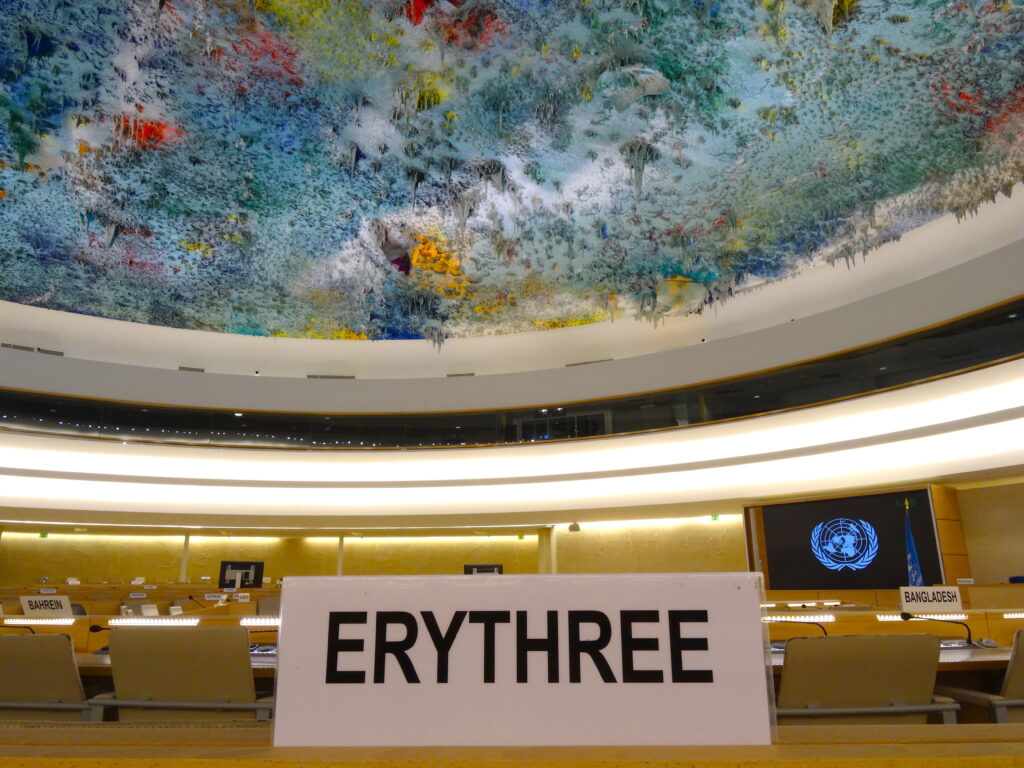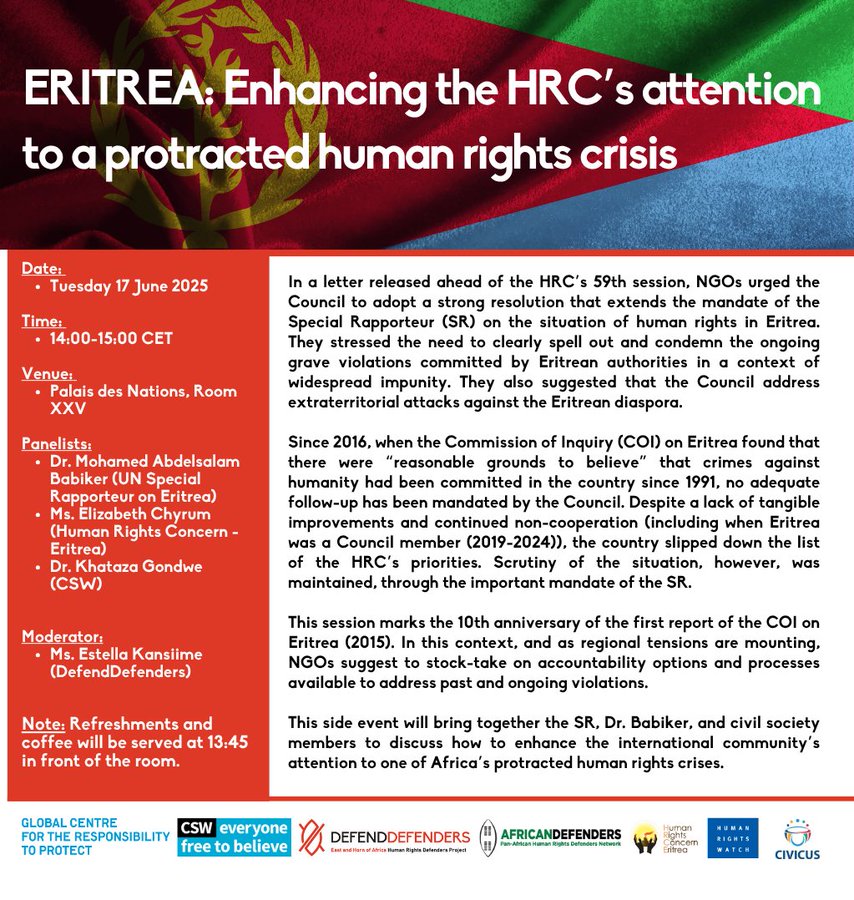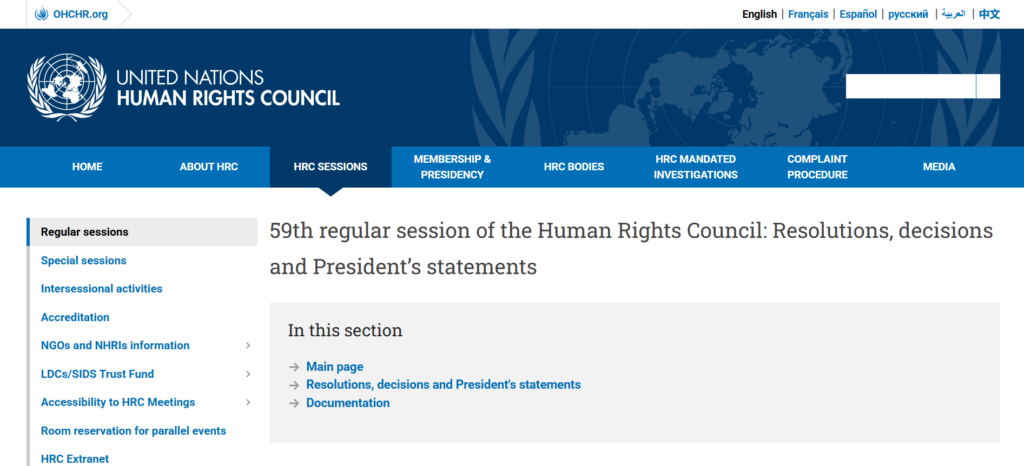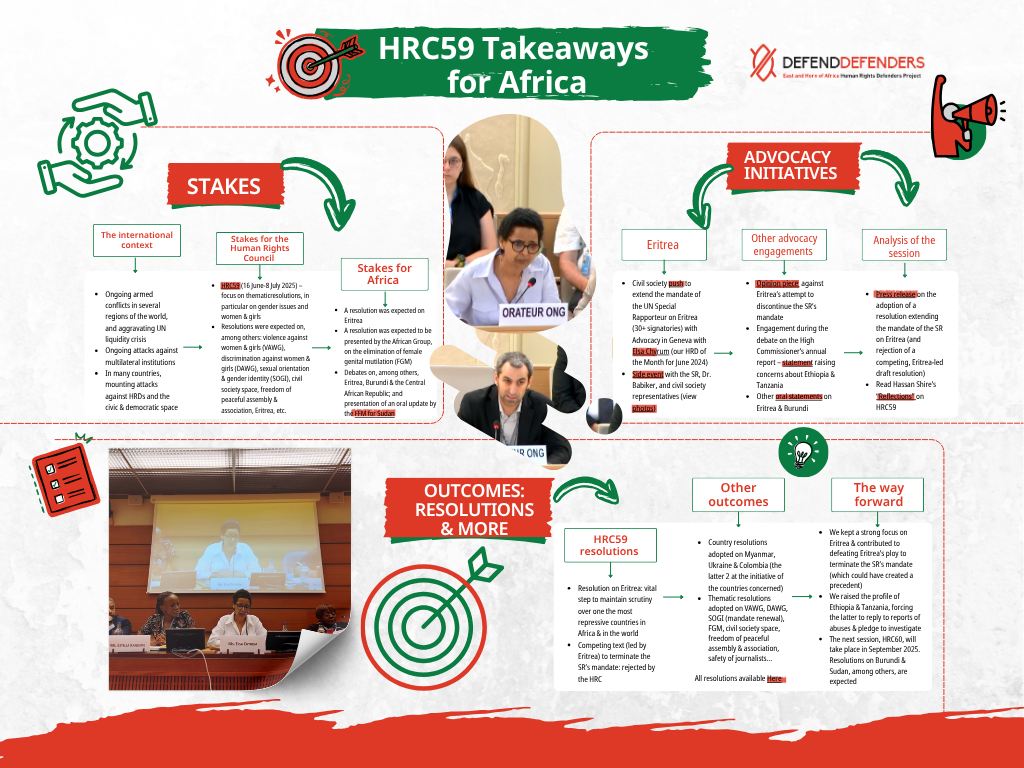A relatively short session due to the UN’s liquidity crisis, the Human Rights Council’s (HRC) 59th session (HRC59) took place from 16 June to 8 July 2025. Three session days were cut, a number of debates could not be held, and a number of reports could not be delivered by the UN’s Human Rights Office (OHCHR). This is a regrettable situation.
Once again, we urge states to pay their UN membership dues in full and on time, in line with their obligations, so the financial resources available match the UN’s approved budget – including for its human rights pillar. This is essential as mechanisms are needed to document violations and address human rights crises – the Commission of Inquiry (COI) on the eastern DRC, for instance, might not be established due to financial shortages.
Despite these challenges, and ongoing attacks against multilateralism, HRC59 saw the adoption of over 20 resolutions, mostly addressing thematic issues. June sessions usually have a strong gender dimension, and this session was no exception. In addition to a resolution renewing the mandate of the Independent Expert on protection against violence and discrimination based on sexual orientation and gender identity (SOGI), resolutions on violence against women and girls and discrimination against women and girls, among others, were adopted.
We deplore the continued absence of general debates from June sessions, which deprives states and civil society from the ability to raise crises that deserve international attention. At HRC59, the only real opportunity to do so was the interactive dialogue on the High Commissioner’s annual report (see below).
Eritrea: Rapporteur mandate extended despite attempts to end scrutiny
At HRC59, DefendDefenders’s main priority was Eritrea. Following advocacy conducted prior to the session, including through coordination of a letter endorsed by over 30 organisations, we supported a seasoned Eritrean human rights defender (HRD), Elsa Chyrum during Week 1 (16-20 June). We held meetings with state delegations from all regional groups, as well as a side event with the UN Special Rapporteur, Dr. Babiker.
For the first time, at this session, the Eritrean delegation attempted to discontinue the Special Rapporteur’s mandate by presenting its own draft resolution, L.1, entitled “Discontinuation of the mandate of Special Rapporteur on the situation of human rights in Eritrea.” This procedural ploy failed as many states voted against L.1 – something I called for in a short opinion piece.
In a press release, we welcomed both the adoption of L.7, the resolution extending the Special Rapporteur’s mandate, and the rejection of L.1, which was critical to deter other states that may consider terminating human rights mechanisms through similar tricks.
We urge states that sponsor resolutions extending these mechanisms, however, not to make unnecessary concessions in the name of “rationalisation”or “cost-saving measures.” They should not lower their ambitions but rather keep the same level of public debates with Special Rapporteurs and investigative mechanisms at the Council. “Downsizing” reporting may embolden those seeking to end these mechanisms.
Elsa Chyrum’s testimony on her participation in HRC59
During HRC59 in Geneva, I witnessed an unprecedented and alarming development: Eritrea, which has never cooperated with the Special Rapporteur, tabled its own resolution to discontinue his mandate. This shocking move required a rapid shift in our advocacy strategy.
I was fully supported by DefendDefenders: they covered my travels, arranged meetings, and facilitated every aspect of my participation. Without their support, I would not have been able to do this critical work. During the week, I met with state representatives, coordinated with allies, spoke on a panel, and delivered an oral statement to the HRC.
We urged states to reject Eritrea’s resolution L1 and to support the EU-led resolution L7 to extend the mandate. This experience underscored how fragile accountability mechanisms are and how crucial it is to stand together to protect human rights scrutiny. It demanded resilience, adaptability, and a renewed commitment to Eritrean victims and survivors.
Raising the alarm over escalating human rights crises
Taking the floor during the debate on the High Commissioner’s annual report, we highlighted negative trends, including, in many countries, a closing civic and democratic space, as well as attacks against HRDs.
We raised the alarm about Ethiopia and Tanzania. In the former, human rights actors face severe and undue restrictions. Considering the premature discontinuation of ICHREE (the HRC’s investigating mechanism on Ethiopia), in 2023, and persecution of independent actors, which will get worse if a restrictive new Civil Society Proclamation passes, we stressed that the HRC should define a clear path towards a new resolution on Ethiopia.
In Tanzania, after the egregious abuses committed against Boniface Mwangi and Agather Atuhaire, we urged investigations and an increase in the level of attention to the country – “[w]ith elections approaching,” we stressed, “risk factors of violations are multiplying. After years of relative opening, including resumption by the government of its dialogue with the country’s vibrant civil society, it is time for UN and African human rights mechanisms to enhance their attention to Tanzania.” This statement, and the right of reply exercised by Tanzania’s Ambassador, led to broad media coverage in the country (for instance by The East African, The Citizen, Mwanzo TV, or The Eastleigh Voice). Tanzanian authorities must live up to their commitments and uphold everyone’s rights. As we highlighted, “Tanzania is too big to fail, and East Africa cannot afford another major human rights crisis.”
Other advocacy initiatives and events
We followed, and welcomed the adoption of, a resolution on civil society space. The resolution follows previous initiatives and is largely in line with our, and CIVICUS colleagues’, advocacy on civic space.
At HRC59, we also co-sponsored and participated in side events, including (a) with ICJ and partners (on attacks against the ICC and judiciaries); (b) with FIACAT, FOCODE and partners (on Burundi); and (c) with Gina Romero, the Special Rapporteur on FoAA (on peaceful protests and digital technologies).
Finally, we delivered three oral statements, on Eritrea, Burundi, and the High Commissioner’s annual report.
Preparing for HRC60 – and DefendDefenders’ and the HRC’s 20th anniversaries
The HRC’s 60th session (to be held from 8 September to 3 October 2025) will be heavy for us, with resolutions on Burundi and Sudan, among others. We will also continue to make the case for ongoing scrutiny of Somalia’s human rights situation, including through the mandate of the Independent Expert, who will report to the Council.
HRC60 will be the last session before DefendDefenders’ 20th anniversary celebrations, in November. We will continue to advocate for a strong, responsive Human Rights Council, which will celebrate 20 years, early 2026.
Hassan Shire
Executive Director, DefendDefenders
Chairperson, AfricanDefenders
Oral statements to the Council
Advocacy documents and press releases
Side Events
Outcomes: Resolutions
-
Eritrea
-
Civil society space

